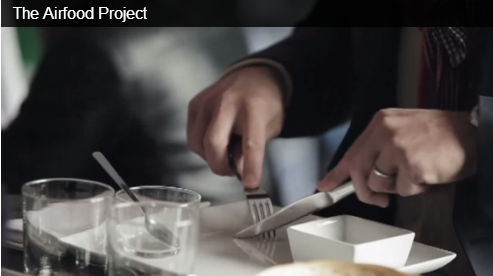Poverty in France: People’s Aid mobilizes to save European food aid.
 FRANCE DESK: The European food aid, which distributes food to 4 million poor in France is threatened with extinction at the end of 2013. On the eve of Christmas, Secours populaire sounding the alarm.
FRANCE DESK: The European food aid, which distributes food to 4 million poor in France is threatened with extinction at the end of 2013. On the eve of Christmas, Secours populaire sounding the alarm.
The atmosphere is jovial, but the plates and cups are empty … It’s a Christmas dinner without food. Through this scene made Wednesday, December 19 near the National Assembly, volunteers and beneficiaries Secours have mimicked what would happen to the poorest in France if the European food aid was not maintained.
“Last year, the association has distributed 181 million meals, half of which came from European aid, the President reminded of the Secours Populaire, Julien Lauprêtre. Accounts are easy to do: if we do not European aid, half of the meal will not be distributed. “
The European Program for the poor (PEAD), created in 1987 by the President of the European Commission at the time, Jacques Delors, to distribute food to 18 million people in 19 of the 27 EU countries including 4 million in France. The Hexagon receives each year 70.6 million euros, then distributed to associations like the Red Cross, the heart or the Eating People’s Aid and the French Federation of Food Banks.
“The needs have been increasing”
Originally, this fund was financed by surpluses of Common Agricultural Policy (CAP). But over the years, surpluses have melted, and the EU has started to fund this program with the CAP budget.
But in 2011, the European Court of Justice, seized by Germany, found that this effort was to identify social policies and not agricultural policies. The MDP was then given a reprieve was extended until the end of 2012 while waiting to find a solution.
Relief popular alarm the disappearance of funds, especially as the needs have been increasing with the crisis. This year, the association has helped 2.5 million people, or 500,000 more than in 2011. “I am a stay at home mom, I have four children, I do not work and my husband is acting, says the mother. Frankly, it’s a boost to come here.”
Despite numerous appeals of associations, heads of state and government of Europe are not able to agree on the budgetary framework for 2014-2020. The European Commission proposes to countries EUR 2.5 billion over 7 years, 360 million euros per year, against 500 million today. But seven countries oppose – Germany, the Netherlands, Austria, Denmark, Sweden, the United Kingdom and the Czech Republic – and could form a blocking minority in the European Council. Berlin and London have already implemented a national distribution system.
Category: English News


